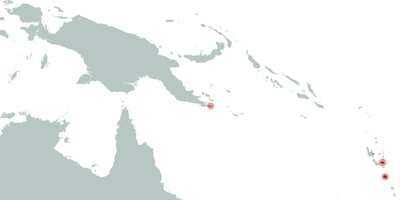MelaTAMP: Project description

Studies on the TAMP systems (tense, aspect, modality and polarity) of the world's languages have focused on the roles of tense and aspect rather than of modality - especially concerning the veridicality dimension of modal meanings. Moreover, our most detailed knowledge about such systems tends to come from tense-prominent languages (in the terminology of Bhat 1999); and those data from mood-prominent languages that have made their way into large-scale surveys may be biased because elicitations and descriptions were often based on the authors' own, usually tense-prominent, mothertongue. Only in recent years have large amounts of primary data from mood-prominent languages become available through language documentation. We propose to explore corpus data from seven Oceanic languages of Melanesia, which have been known to be mood-prominent, for an areal typological study of their TAMP systems. Additional elicitations will be designed specifically to fill the gaps left by the corpus data. Second, the languages of Melanesia are typically spoken by only several hundred to several thousand speakers, and do not have a tradition of written records, which has made them largely inaccessible to researchers, except for individual grammatical descriptions. By exploring existing, annotated corpora, we will increase their accessibility both for studies on TAMP-related aspects, and for other typological research questions.
A partial, ongoing documentation of our project can be found in our wiki.
MelaTAMP is funded by the German Research Foundation (DFG) during a project term of 3 years from 2016 to 2019.

